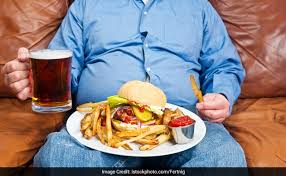Source: food.ndtv.com
Challenging the common belief that puts the blame on both on diet and lack of exercise for obesity among children , a new report says that eating too much — not exercising too little — could lead to long-term weight gain in children.
“Our study challenge that notion. We demonstrate that Amazonian children with physically active lifestyles and chronic immunological challenges don’t actually burn more calories than much more sedentary children living here in the U.S,” said Samuel Urlacher, assistant professor of anthropology at Baylor University in Texas.
Scientists explained that this similarity in energy expenditure suggests that the human body has the ability to balance energy budgets when placed in different contexts.
“Ultimately, eating too much, not moving too little, may be at the core of long-term weight gain and the global nutrition transition that often begins during childhood,” he said in a paper published in Science Advances.
To examine how children spend calories, Urlacher and his colleagues took and studied data from 44 forager-horticulturalist Shuar children (ages 5 to 12). The team then compared it to those of industrialized children in the US and the UK.
The team used gold-standard isotope-tracking and respirometry methods, to measure the energy expenditure among children. With these findings and with the help of data reflecting physical activity, immune activity, nutritional status and growth, the scientists reached to their conclusion.
Shuar children are approximately 25 per cent more physically active than industrialized children. They were found to have approximately 20 per cent greater resting energy expenditure than industrialized children, to a large degree reflecting elevated immune system activity.
Scientists said that despite wide differences in lifestyle and energy allocation, the total number of calories that Shuar children spend every day is not very different from that of industrialized children.
“These findings advance previous work among adults, showing that energy expenditure is also constrained during childhood,” said study co-author Herman Pontzer from Duke University.
However, “exercise remains critically important for health and for weight management given its effects on appetite, muscle mass, cardiopulmonary function and many other factors,” Urlacher said.
“Our results don’t suggest otherwise. Everyone should meet recommended daily physical activity levels”.
